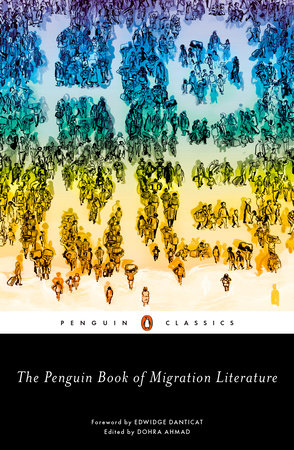The Penguin Book of Migration Literature Reader’s Guide
By


1. What was your favorite story, poem, or excerpt? Which one(s) really resonated with you, and why?
2. What is your migration story? Do any of the pieces in this collection connect to your own experience or your family’s history?
3. What are some of the genres or writing types that you saw here? Why do you think that the authors chose those particular genres? (For example, why would Edwidge Danticat format “Children of the Sea” as epistolary fiction, or a series of letters between separated lovers? Why would Claude McKay use a strict meter and rhyme scheme in “The Tropics in New York”?)
4. What differences did you notice between the experiences of children (as in “Under the Wire,” Lost in Translation, “The Time of the Peacock,” and “Green”), young adults (as in The Bridge of the Golden Horn, Tea in the Harem, and White Teeth), and older adults (as in Temporary People, “My Son the Fanatic,” and “A Conversation”)?
5. Which characters are certain of their decision to migrate, and which are ambivalent? What factors do you see contributing to that difference?
6. How do you see categories like race, class, gender, sexuality, educational status, linguistic background, and religion shaping any character’s migration experience? What role have those identity categories played for you or your family members?
7. How did the various writers craft their language differently? Did their use of nonstandard English or untranslated words change how it felt to read their writing?
8. Watch any of the videos or listen to any of the audio recordings at https://comparativemigration.weebly.com/web-based-resources.html. Did you find that your perception of the poem or other literary work changed once you heard it read out loud?
9. In the foreword to this anthology, Edwidge Danticat writes, “Human beings have been migrating since the beginning of time.” What would the world look like without migration? What would literature look like?
10. What’s missing from the collection? Have you read works of migration literature that depict other routes and experiences that you didn’t see here? (To share those readings and see many others, go to https://comparativemigration.weebly.com/suggestions-for-further-reading.html.)
Just for joining you’ll get personalized recommendations on your dashboard daily and features only for members.
Find Out More Join Now Sign In